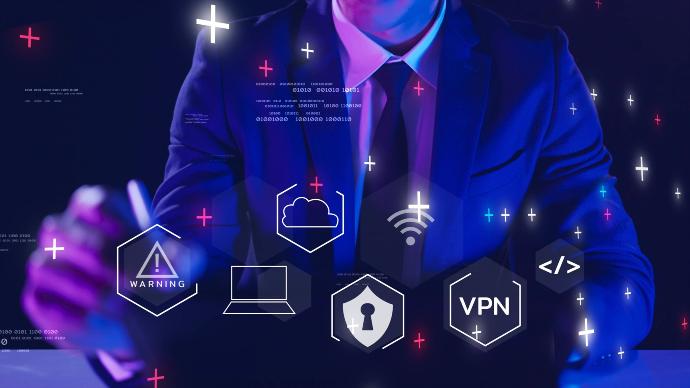DevSecOps as a Service
We aid in fostering a mindset prioritizing security within teams.
Importance of
DevSecOps
While paradoxical, security stands as both a crucial necessity for everyone and often an inadequately executed facet within every company's framework.
It demands profound technical expertise, comprehension of processes and company requisites, and current awareness of security advancements, tools, and risks.
At Tirzok, we've consolidated all these requisites and showcased our proficiency through diverse certifications such as SOC2, ISO, FedRAMP, and more.

DevSecOps
Benefits

DEFENSE
Guard against brute force, DDoS, code injections, and other attacks

ENCRYPTION
Encrypt data to thwart MITM attacks and enhance safety.

ACCESS MGT.
Effortlessly merge security into DevOps: Robust network policies, streamlined secrets.

TRAFFIC
Clearly specify permitted inbound and outbound connections. Avoid data leaks to unidentified servers.

PROCESSES
Establish and uphold procedures for access requests, onboarding, incidents, and related occurrences.

COST
Start security early, save triple in safeguarding intellectual property.
DevSecOps
Expertise

-
AWS SECURITY
- IAM - least privilege paradigm up to the last
- KMS - full at-rest and in-transit encryption, including cross-account kms, limited key access granting and other features
- SecurityHub, Access advisor
- SSM Compliance, Patch Manager - Automated continuous patching, as well as reporting and statistics of the process
- Secrets manager - Integration with databases and other services to guarantee the password/key rotation and secret encryption at-rest
-
WAF - OWASP TOP 10, DDoS, Dictionary attacks prevention

-
DOCKER SECURITY
- Image signing - Use Notary to sign and verify every image you use
- Rootless mode - Do not allow docker daemon to gain root access
- Apparmor/SELinux - Use native RedHat and Debian security features to properly configure docker daemon
-
Image optimization - Follow the security best practices - non-root users, multistage builds, read-only binary files

-
KUBERNETES SECURITY
- Security context - leverage native K8S functionality to prevent any interference with docker containers - read-only filesystems, privilege escalation, UID/GID lock
- Service Mesh - use Istio, Linkerd, AppMesh and other service mesh providers for automatic encryption in-transit, control over the network connections, JWT authorisation, and other features
- Network Policy - Take control over the network to a greater extent. Control interconnections between pods and namespaces, direction of connection and protocol

-
SIEM
- ELK, Prometheus+Grafana - Open-source tools for monitoring, alerting, and reporting of security events
- Authentication events logging - reporting and alerting for any successful and unsuccessful authentication events
- Integrity monitoring - reporting and alerting for any modification of a filesystem or cloud configuration
When Choosing our DevOps Consulting

Cost Efficient
Our skilled engineers optimize resources, reduce waste, and create value.

Faster Time to Market
We speed up software delivery with our agile approach. Using CI/CD pipelines and automation, we streamline processes, remove bottlenecks, and deliver swiftly.

Scalability and Flexibility
We ensure flexible scaling to meet needs, driving confident business growth.

Enhanced Collaboration
We dismantle silos, foster knowledge sharing, and promote collaboration for successful project outcomes.

Data Security
We safeguard your sensitive information's confidentiality, integrity, and availability during development and operations.

Customer Experience
We optimize software delivery for faster feature releases, prompt bug fixes, and ongoing improvements.
More About
DevSecOps

DevOps' popularity spawned various methodologies and buzzwords like GitOps, SlackOps, and InfraOps, yet DevSecOps stands out. It's not just a buzzword; it encompasses critical technical aspects of modern security tasks like:
-
Docker Security
-
Kubernetes Security
-
AWS Security
-
Cloud Security
-
Linux Security
-
Security as Code
Leverage DevOps to seamlessly build, test, and release top-notch code, enhancing your delivery pipeline.
Frequently Asked
Questions
Have other questions? Email us at: contact@tirzokmsp.com
It's a common practice for startups to delay focusing on security until they're more established and financially stable. That decision often makes sense, given the expenses involved and the potential slowdown in the development process due to compliance with numerous standards.
However, Tirzok strongly advocates for prioritizing security right from the beginning. Their reasoning is that overlooking security early on can lead to even greater challenges and costs later. Take, for instance, controlling outgoing connections—it's far simpler to start by blocking all connections and then gradually permitting them as needed. Waiting to implement this could result in the development team scrambling to gather URLs, forgetting some, and facing disruptions in 3rd-party integrations, a lesson drawn from real project experiences.
Absolutely. While some NIST requirements regarding processes might seem stringent, the technical standards were authored by seasoned professionals. We highly recommend adhering to them, whether preparing for an audit or simply aiming to implement top-notch security practices.
SIEM, which stands for Security Information and Event Management, typically encompasses a monitoring, reporting, and alerting system for various security events. These can include authentication, authorization, configuration, secrets management, IDP (Intrusion Detection and Prevention), and IDS (Intrusion Detection System).
Across various security audits, a consistent set of common requirements emerges:
1. Least privilege principle
2. Visibility and reporting
3. Continuous patching and updates
4. Ubiquitous encryption
5. Static and dynamic prevention mechanisms
6. Adherence to defined processes
It necessitates a dedicated individual or team, contingent on the dev team and company size, responsible for overseeing processes, technical implementation, or articulating the technical problem statement.
Based on the 4 key points of security audits, here are recommended services to leverage:
1. Least privilege principle - IAM, Access advisor, CloudTrail, Macie
2. Visibility and reporting - CloudWatch, Security Hub, Inspector, Artifact
3. Continuous patching and updates - Inspector, SSM Compliance and Patch manager
4. Ubiquitous encryption - KMS, Certificate Manager, Signer
5. Static and dynamic prevention mechanisms - Firewall, WAF, Shield, Guard Duty
6. Processes - Audit manager, Config
Kubernetes boasts a vast community with an extensive array of security services. We suggest exploring these via CNCF Landscape. However, Alpacked specifically highlights Istio, OPA, Notary, Kube-bench, and Falco as key ones to focus on.
Absolutely, CNCF and major contributors to Kubernetes often stem from large enterprises. Their investments in open-source technologies aim to enhance stability and maturity, tailoring these products for widespread applicability.
However, unlike enterprise software, open-source solutions often necessitate a team of professionals for proper configuration and integration with other services due to their varied nature, as they usually aren't part of a unified family of solutions.

Let's arrange a free consultation
Just fill out the form below and we will contact you via email to arrange a free call to discuss your project and estimates.